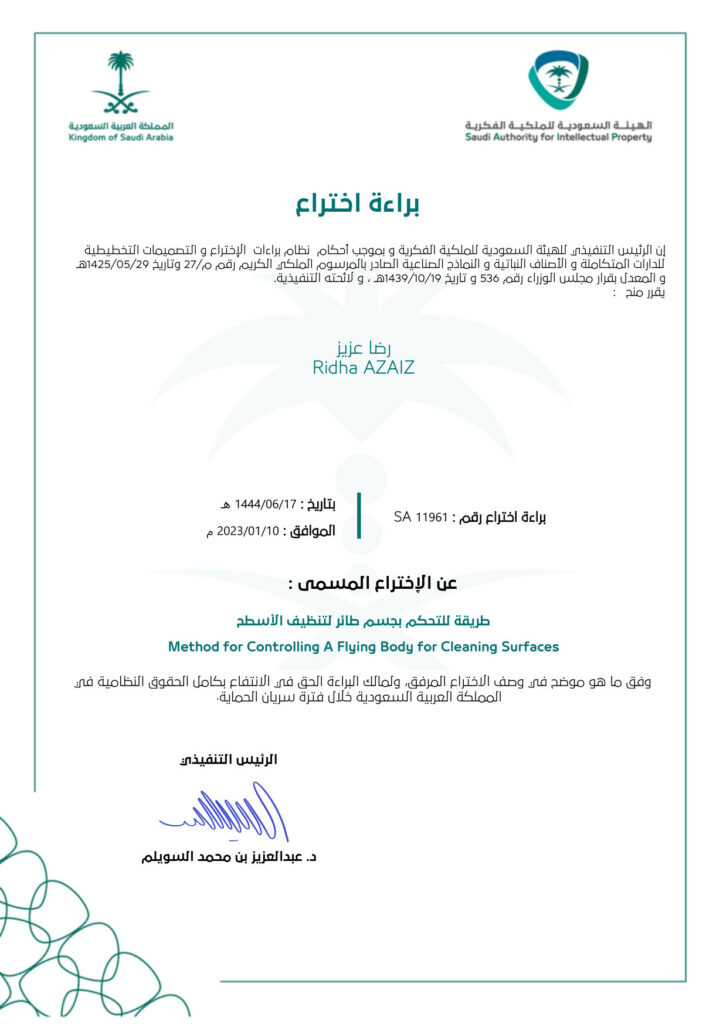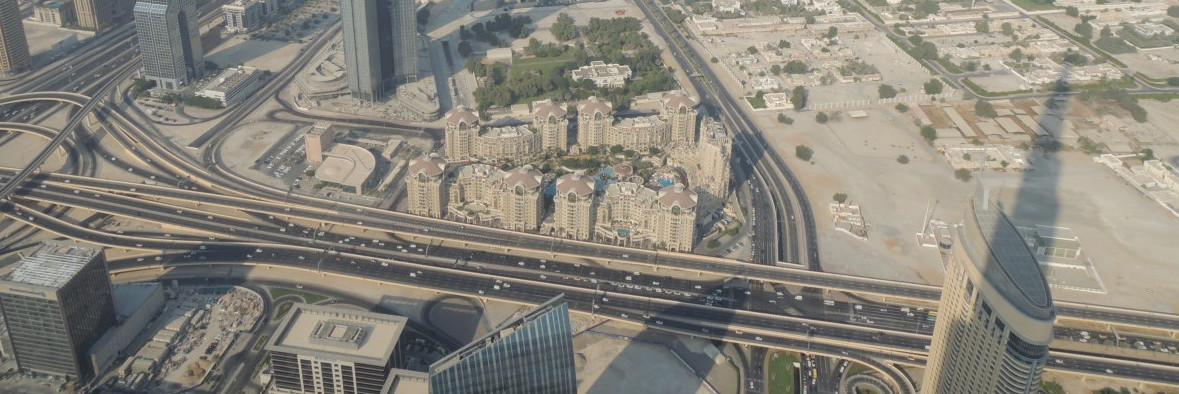Winds of Change: Saudi Arabia Patent Grant Boost Drone Airflow Cleaning for Solar Energy
The founder and inventor of Aerial Power, Ridha Azaiz, has recently secured a patent grant in Saudi Arabia for his innovative drone airflow cleaning technology, adding to the prior grant in the US in 2018. This technology significantly enhances solar energy efficiency in desert regions across the globe, addressing water scarcity issues by reducing the need for fresh water resources for maintenance.
This recent patent grant in Saudi Arabia not only demonstrates the ingenuity of this technology but also opens up new opportunities in the built environment sector, particularly in regions with high solar energy potential. One such opportunity is the ambitious NEOM project and THE LINE, a planned futuristic city in Saudi Arabia that aims to integrate cutting-edge technology and renewable energy solutions into its infrastructure. The drones are capable of cleaning windows and facades to a degree, i.e. after a sandstorm.

The patented method involves using a drone equipped with sensors to align it according to the panel and employs its generated airflow to clean the surface, making it an ideal non-invasive technology for environments with limited water resources, such as deserts. By utilizing the natural byproduct of a drone’s airflow, the solution offers a groundbreaking and Eco-friendly approach to solar panel cleaning.
Aerial Power’s drone airflow cleaning solution holds great promise for improving solar panel performance and reducing energy losses due to dirt accumulation. It contributes to a cleaner and more sustainable future for the built environment and visionary projects across the Middle East, as well as in areas like the Mojave Desert in the US.

In addition to the application of Aerial Power’s drone airflow cleaning technology in solar panel maintenance, the innovative solution can also tackle a range of other challenges prevalent in desert regions and areas with harsh environmental conditions:
Agricultural productivity
In arid regions, maintaining agricultural productivity can be challenging due to water scarcity, soil degradation, and the harsh climate. The drone airflow cleaning technology removes dust and debris from greenhouse surfaces and other agricultural infrastructures, ensuring optimal light penetration and temperature control for crop growth. Fitting a window cleaning drone for this task allows for regular deployment.
Dust storms and air pollution
Frequent dust storms and high levels of air pollution can lead to rapid accumulation of dust and contaminants on various surfaces, including solar panels, windows, and building facades. The window cleaning drone technology can provide an efficient and sustainable solution for regular cleaning and maintenance, improving air quality and the overall well-being of the inhabitants.
Infrastructure maintenance
The drone cleaning technology can be used to maintain the cleanliness and structural integrity of critical infrastructure, such as bridges, dams, and power plants, which are often exposed to harsh environmental conditions. Regular cleaning can prevent corrosion, wear, and other types of damage, extending the lifespan of these structures and reducing maintenance costs.
Transportation sector
In desert regions, roads, railways, and airports are constantly exposed to sand and dust accumulation, impeding visibility and safe operation. Drone airflow cleaning technology can offer an efficient solution to keep these transportation infrastructures clean and functional, improving safety and reducing the need for manual labor.
By addressing these challenges, Aerial Power’s drone airflow cleaning technology has the potential to significantly improve the quality of life and operational efficiency in regions with harsh environmental conditions. The patent grant in Saudi Arabia paves the way for the implementation of this groundbreaking technology in various sectors, promoting a cleaner and more sustainable future.
The technology is protected by Patent Number US 10,046,857, Saudi Arabia Patent Number 11961, and international counterparts.
